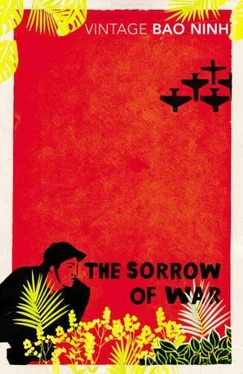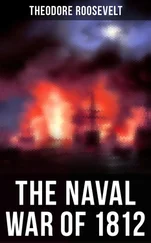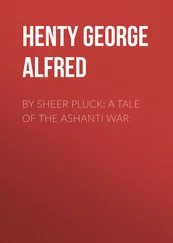He pointed to a pupil among the tenth-form boys who were holding wooden rifles, spears, spades and hoes, showing childish bravado. ‘Life is here, death is also here,’ the boy said and the others sang noisily. Someone yelled, ‘Kill the Invader!’ and everyone cheered.
But Phuong and Kien were not at the school meeting held to preach the three golden rules of preparedness. They had escaped and had hidden behind the Octagon building on the shore of the West Lake. From where they sat, under a tree on the lake’s edge, they could see the Co Ngu road, tinted red by the setting sun, and the flame trees in brilliant bloom. Cicadas sang loudly, continuously.
‘Don’t worry,’ Phuong had said smiling, delighted she had skipped classes with Kien and also dodged trench-digging duties. She had worn her skimpy swimsuit under her school uniform, right there in the school, as if for a dare. ‘Forget about the war and all the heroes, young and old heroes. Let’s swim over to the Water Palace, far enough out to be dangerous…’
What a beautiful, warm and sweet April day it was. The delirious hugs together in the light green water. The fish brushing by them, the lilypads. Phuong’s beautiful face suffused with water, the bubbles from her underwater breathing, her hair waving, heavy with water, her shoulders, her lovely long legs. All was so intimate, so perfect, that it made him ache.
The distant sound of a choir in the schoolyard reached them.
‘Don’t worry,’ Phuong had said as they listened. She kneeled behind a shrub and removed her blouse. When she had emerged she had on a lovely black swimsuit with plunging neckline. The clarity of her pale skin contrasted beautifully with the black suit.
Kien, already nervous, was breathless. He hardly dared look at her lovely body.
As they swam the sound of the choir again reached them, the twilight deepened and they got further and further from the bank. He recalled this had been the last peaceful stretch in the river of his life; ahead of him from that moment on there was a long, new stretch of river, full of fire.
War.
* * *
His mind skipped from the lake to the Thanh Hoa station, which was burning fiercely after the bombing raids. Everything that could burn was burning. From the capsized train men, women and children rushed to the platform to escape. Clothes caught fire and burned on their bodies. Headless shadows stamped about. The roar of the planes continued unabated with bombs falling obliquely in the sunlight. For the first time in his life he saw people being killed, saw barbarity, saw blood flowing freely.
From then on his whole generation threw itself into the war enthusiastically, fiercely, making its own blood flow, and causing the blood of others to flow in torrents. Rushing onward, engaging in fierce hand-to-hand combat at the foot of the Ngoc Bo Ray mountain, soldiers bayoneting each other, beating each other with rifle stocks. Human forms running helter-skelter, zig-zagging from machine-gun sights only to be sent flying into the air.
Kien saw himself holding a rifle, shooting at someone’s head; the sub-machine-gun bullet, as powerful as a bomb, hit him right in the mouth and his face exploded taking his left eye, his cheekbone and his lower jaw. ‘Ahaaaahhaha,’ he had cried. The sound was like laughter, more likely a wail. How frenzied and aggressive this generation of his had become!
The violent and dreadful years and months. The Tet Offensive, Second Tet, the 1972 dry season, the post-Paris Agreement battles. The parched lands, dazzling under the sunlight, writhing in pain. The immense Central Highlands, cruel with a rolling red dust clouding the sky. Yamo, Dac Dam, Sa Thay, Ngoc Rinh Rua, Ngoc Bo Bieng, Chu Co Tong, all places which conjured the most terrible, fierce memories replete with suffering. There had been also the laughing, the shouting, swearing, drinking, talking, and happy times. A lot of crying, too.
Kien was again back in the jungle, at Cong Ho Rinh, an ancient, desolate village, now ruined, laid flat by fighting and now just a graveyard where human bones, broken weapons and other war materials lay around like garbage.
It must have been as beautiful as little Dien Binh village which he saw before it got caught up in the firing. It had been part of a lovely pastoral scene along the Dac Po Xi river when Kien’s battalion first saw it. Now it was a heap of ash and corpses and one imagined the spirits of the dead flying away in such numbers they’d make a fog-bank along the river.
Shaking the curtain of dew and smoke from another memory he saw very clearly himself and ‘Elephant’ Tac both kneeling at a huge, captured M60 machine-gun and firing it non-stop at a stream of enemy stragglers from the ARVN 45th Regiment. They were running for their lives from Phuoc An, near Buon Me Thuot, being herded by tanks.
The machine-gun eagerly ate up the cartridges and spat the copper shells aside, blazing deadly fire at the stream of insane men rushing on into their sights, making themselves targets of flesh. The gun trembled violently, swivelling on its base, steam rising from its cooling tank.
Kien, in a firing frenzy, had not wanted to stop shooting but to continue would have been massacre, not fighting, for the corpses had by now piled higher than he’d ever seen before.
The T54 tanks driving the enemy into his sights now appeared. ‘Stop,’ shouted Tac, dropping the cartridge belt and moving over to Kien. ‘Stop, cease fire,’ he shouted, shaking Kien’s shoulders.
Kien stopped firing. Kien and Tac watched as the T54s approached through the enemy dead. Others were kneeling, holding both hands high in surrender. The killing had been obsessive, all-devouring. But now the gun was silent the scene turned to farce. Kien looked at Tac.
Tac, the kindly ‘Elephant’, slowly bent down beside Kien, holding both hands to his chest as if embracing his heart. He looked at Kien with intense surprise, then his eyes turned dull and he fell forward, revealing the deadly bloom of red, flowering under his left shoulder.
Kien recalled it all. Everything. Not a single detail was missing. His fighting life was being revived in flashbacks, or in slowly unfolding scenes as heart-rending as a funeral march.
And now, in his room, Kien seemed to see the end of his stream of life. Journey’s end. He seemed to hear someone calling softly to him: It is time. He closed his eyes, wanting to let himself slip away.
But life would not let him go that easily.
It paraded a variety of tempting images before him, calling to him in alluring voices from the other side of his river of life. His time would be another time. There was still too much to do. He had the burden of his generation, a debt to repay before dying. It would be tragic and unjust in the extreme if he were to pass away, to be buried deep in the wet earth, carrying with him the history of his generation. If only he could shed all other needs of everyday living and concentrate all his energies into writing, his task would be over sooner. He would then be released from the burden of life and float freely on the stream to his journey’s end, where countless familiar souls awaited him.
Back to his duty. From now on his life seemed restricted to the dark hours. His table lamp came on at dusk and stayed glowing until dawn. His own form seemed no more real than the shadow he cast on the wall. As he wrote he seemed taciturn, almost immobile. But the fire within, fuelled by his powerful memory, burned fiercely.
Kien wondered about his ability to work through the nights. Not everyone could withstand this form of self-imprisonment, or self-confinement. He had probably inherited it from his father.
His father had been a sleepwalker all his life. He would silently rise from his bed, as though weightless, and slowly advance towards the bedroom door, with his eyes tightly closed, his arms by his side. He would walk all about the room, the hallways, upstairs and downstairs, out of the front door and, if the gate had been left open, out into the street. Hanoi people were kind and good-natured in those days and they would softly step aside for the old man straying from his home. No one disturbed him in his fantasies, not even the children. They intervened only if he was sleepwalking towards the lake.
Читать дальше












